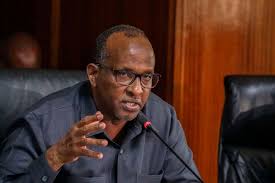Kenya has launched a new disease laboratory at the Kenya Medical Research Institute (KEMRI). Health Cabinet Secretary Aden Duale officially opened the lab on Tuesday, September 16.
The lab will focus on polio diagnostics and surveillance for Somalia, Djibouti, Eritrea, and Comoros. It will also support genomic sequencing, which helps scientists read and understand the DNA of viruses during outbreaks. This is important for diseases like Mpox, measles, rubella, and enteric viruses.
Reducing Reliance on Foreign Labs
“This lab is one of its kind in our region. It will reduce our reliance on labs in other countries, such as South Africa,” said Duale.
The lab was funded with support from the Gates Foundation, eHealth Africa, and the World Health Organization (WHO). It will give KEMRI scientists a space to innovate and conduct research. Kenya hopes the lab will become a regional hub for health science.
Tackling Africa’s Health Infrastructure Gaps
For decades, Africa has faced a lack of medical laboratories. This has slowed disease diagnosis, research, and healthcare delivery, especially in rural areas.
A recent report by the Global Young Academy found that 80% of young African researchers considered leaving the continent due to these challenges. About 60% even thought of changing careers.
Economic and Health Benefits
Duale highlighted that the lab will create jobs for medical researchers and support Kenya’s Bottom-Up Economic Transformation Agenda (BETA) for health. It also aligns with efforts to achieve Universal Health Coverage (UHC).
The new lab will help Kenya finish the fight against polio and build stronger, resilient health systems. By reducing dependence on foreign labs and encouraging local research, Kenya is taking a major step toward better healthcare for its people and neighboring countries.

